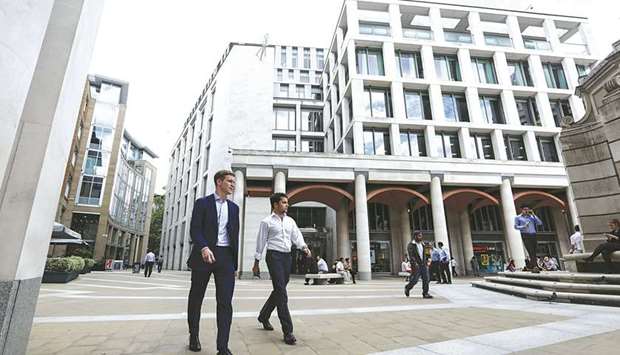Sterling shot above $1.36 when a Bank of England policymaker signalled a rate hike for “the coming months”, after British borrowing costs were this week left on hold at a record-low 0.25%.
Markets reacted little, meanwhile, to an attack on a London Underground train at Parsons Green, southwest London, which police are treating as a terrorist incident.
“Londoners and markets alike take these sorts of incidents in their stride,” ETX Capital analyst Neil Wilson told AFP.
“The FTSE’s drop today is by and large about the pound’s rally, as that depresses the foreign earnings of lots of the big blue chips.”
The British capital’s FTSE 100 index of top companies fell 1.1% to 7,215.47 points as sterling rebounded to $1.3616 — the highest level since June 2016.
“The FTSE is suffering at the hands of a rampant pound,” added IG analyst Joshua Mahony.
“Sterling rose to its highest against the US dollar since Brexit with its best weekly return since February 2009,” noted Jasper Lawler, head of research at London Capital Group.
The pound was catapulted higher after the Bank of England’s most dovish rate-setter revealed that he may back a hike “as early as in the coming months”.
Gertjan Vlieghe, a member of the BoE’s Monetary Policy Committee (MPC), said he has been “struck” by a series of developments in the British economy, including high inflation, employment growth, slight wage increases and stronger spending growth.
“Until recently, I thought the appropriate response of monetary policy was to be patient, given modest growth and subdued underlying inflationary pressure. But the evolution of the data is increasingly suggesting that we are approaching the moment when bank rate may need to rise,” Vlieghe said.
The possibility of a hike as early as the next BoE policy meeting in November comes as other central banks consider similar moves with world growth slowly improving.
Eurozone trading was muted yesterday with Frankfurt and Paris stocks slipping 0.2% each at 3,514.84 points and 5,213.91 points respectively. The EURO STOXX 50 fell 0.3% at close.
Meanwhile, Wall Street pushed higher despite disappointing economic data, with the Dow adding 0.2%.
Sagging sales of autos held down overall US retail sales in August, which fell 0.2% overall, as American consumers bought goods and services at their slowest pace in six months.
Output at US factories plunged 0.9% in August due to the hit from Hurricane Harvey that shut down huge parts of the nation’s oil refining, the Federal Reserve reported yesterday.

